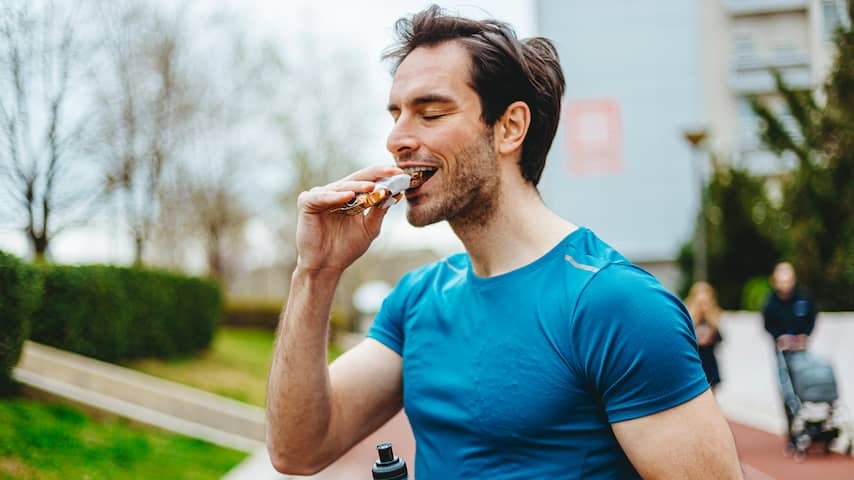
Are you starting to exercise? If you want to do it right, here’s what to pay attention to in terms of nutrition. Because what is better: eating something before or after exercise?
It’s better not to exercise on an empty stomach, advises the Nutrition Center. “Your muscles then get too little energy and it is not good for muscle building.” You also run the risk of getting tired earlier during exercise and not lasting the sports lesson. So eating nothing at all is not a good idea, but too much is not good either.
If you eat too large a meal, your stomach needs more time to digest the food. This can cause stomach problems during exercise. You may recognize the feeling of a hastily eaten sandwich that comes up during exercise.
You can prevent that by not exercising immediately after the meal. “For an average workout, it is recommended to eat a light meal with carbohydrates about one and a half to two hours before the sports lesson,” says tennis coach and movement scientist Erik Faneker. “That gives your body time to process the food and perform optimally.”
Carbohydrates are in, for example, bread or potatoes, and they are important, says sports dietitian Anja van Geel. She advises paying attention to the correct amount around and possibly during your training. If you get enough carbohydrates before your tennis lesson starts, it ensures that your body gets energy to perform well.
Fibers can give a ‘heavy’ feeling
How much is enough depends on the duration and intensity of your training. If you are not busy for more than an hour, the recommended amount of carbohydrates is between 1 and 2 grams per kilogram of body weight.
For longer and heavy training sessions, between 3 and 4 grams are recommended. For example, if you are going to run for more than an hour and you weigh about 70 kilos, you could eat between 210 and 280 grams of carbohydrates before training.
You can find carbohydrates mainly in pasta, rice, fruit and oatmeal. For a lighter meal you can also grab a sandwich or cracker. If you don’t have much time, grab a banana or eat a rice cake. The Nutrition Center explains that you can also eat a small part (less than half) of a larger meal in advance. You can save the rest for after exercise.
Be careful with eating too many fibers before exercise, warns Faneker. “Fibers have a lot of health benefits, but too short before exercise they give you a ‘heavy’ feeling and they also don’t help you if you have to perform.” So don’t eat a full plate of spaghetti just before you go running.
The Nutrition Center also advises to avoid (or reduce) products that contain a lot of fat or protein. This includes, for example, cheese, chicken and eggs. These nutrients stay in your stomach for a long time, which can cause problems during exercise.
After exercise, it’s mainly about recovery
What you eat before the sports lesson does make a difference. If you pay attention to what you eat, it can promote your sports performance. After exercise, it’s mainly about recovery.
“Proteins play the biggest role in this. They help with the recovery and building of muscles,” knows Faneker. “For sports such as football, tennis and hockey, a combination of carbohydrates and proteins afterwards is ideal to replenish your energy reserves and support your muscles.”
You already get that combination after eating a ‘normal’ breakfast, lunch or dinner, says the Nutrition Center. From that you get all the nutrients you need. “So also enough carbohydrates for energy and enough proteins for muscle recovery.”